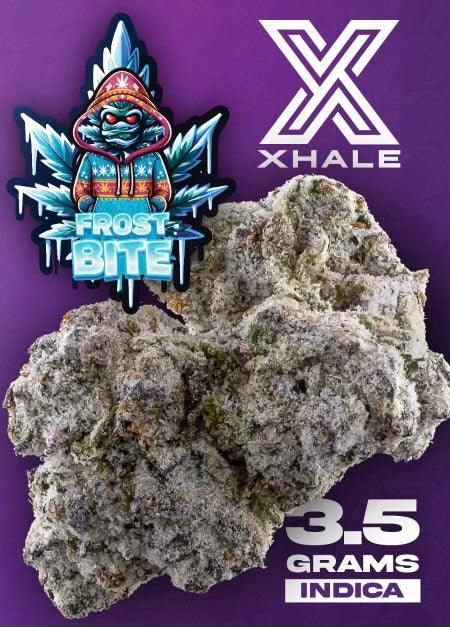
Delta-9 THC: Unraveling the Mystery of Cannabis' Most Famous Compound
The world of cannabis is full of fascinating compounds, each with its unique profile of effects and potential therapeutic benefits. However, one stands out above the rest: Delta-9-tetrahydrocannabinol (Delta-9 THC), known for its psychoactive properties and its central role in the global perception of cannabis.
Delta-9 THC: An Introduction
Delta-9 THC is a cannabinoid, a type of compound found naturally in the cannabis plant. It's among the most abundant cannabinoids in cannabis and is the primary psychoactive compound, meaning it's responsible for the 'high' associated with cannabis use.
The effects of Delta-9 THC are wide-ranging and can include feelings of euphoria, increased sensory perception, and relaxation. However, it can also cause less desirable effects such as anxiety, paranoia, and short-term memory loss in some users, particularly at high doses.
The Science Behind the 'High'
To understand how Delta-9 THC affects the human body, we need to look at the endocannabinoid system (ECS), a complex network of receptors present in various parts of our bodies. This system is involved in numerous physiological processes, including pain sensation, mood, appetite, and memory.
Delta-9 THC interacts with the ECS by binding to its CB1 receptors, primarily located in the brain. This interaction alters the normal functioning of these receptors, leading to the various effects associated with THC.
Therapeutic Applications
Despite its notoriety for recreational use, Delta-9 THC also has significant therapeutic potential. Research suggests that it can provide relief for a variety of medical conditions. Enjoy the best hemp deals from Pro Vape.
Delta-9 THC has been shown to act as an appetite stimulant, making it useful for individuals with conditions like HIV/AIDS and cancer, where weight loss is a common issue. It's also been found to be effective in reducing nausea and vomiting in chemotherapy patients.
Additionally, THC has shown promise in managing chronic pain, spasticity in multiple sclerosis, and certain sleep disorders. However, it's crucial to note that while the therapeutic potential of THC is significant, further research is necessary to understand its full range of applications and potential side effects fully.
Legal Considerations
Despite the growing acceptance and legalization of cannabis for both medicinal and recreational purposes worldwide, the legal status of Delta-9 THC remains complex.
In the United States, for example, cannabis remains a Schedule I substance at the federal level, making it illegal. However, numerous states have decriminalized or legalized its use, creating a patchwork of legislation across the country. Similar legal inconsistencies exist in other regions worldwide, reflecting the ongoing debate about cannabis and its primary psychoactive compound.
Before using products containing Delta-9 THC, it's essential to understand the laws in your particular jurisdiction.
Safety and Side Effects
While Delta-9 THC is generally considered safe for adult recreational and medicinal use, it's not without potential side effects. These can include dry mouth, red eyes, increased heart rate, coordination problems, and delayed reaction times.
Moreover, substantial doses of THC can lead to more serious issues such as paranoia, anxiety, and hallucinations. Long-term use can also result in tolerance and dependence.
To minimize these risks, it's recommended to start with low doses and slowly increase as tolerated, particularly for new users. Those with a history of mental health disorders, pregnant women, and individuals with heart conditions should avoid using THC.
The Future of Delta-9 THC
The story of Delta-9 THC is still being written. As cannabis legalization continues to spread, more research is being conducted on THC's effects, leading to a greater understanding of this complex compound.
Future developments in areas such as THC-based medications, harm reduction strategies, and public education promise to reshape the way we understand and use this remarkable compound. With ongoing research, the therapeutic potential of THC will continue to unfold, promising exciting developments for the world of medicine and beyond.
Conclusion
Delta-9 THC is undoubtedly the most well-known compound in cannabis. Its reputation as the primary psychoactive component often overshadows its therapeutic potential. However, as our understanding of cannabis and its compounds grows, we're beginning to see a more nuanced picture of THC. Coming in various forms such as thc gummies, thc vapes and other thc edibles.
Beyond the 'high', THC offers potential therapeutic applications for numerous medical conditions. As we continue to study this fascinating compound, we can look forward to a deeper understanding of its effects, both recreational and therapeutic.
In the end, Delta-9 THC exemplifies the complexity of cannabis. It's a reminder that this plant, often oversimplified in public discourse, holds a multitude of compounds, each with its unique profile of effects and potential uses. As we continue to unravel the mysteries of cannabis and cannabinoids like THC, we pave the way for new treatments, experiences, and perspectives on this remarkable plant.




